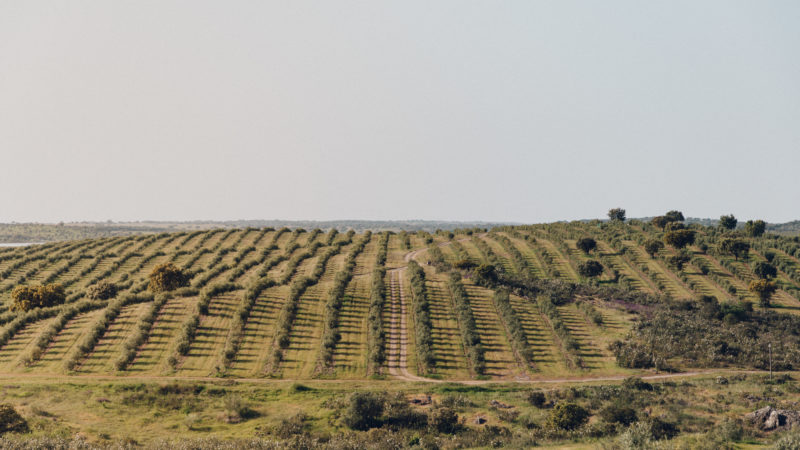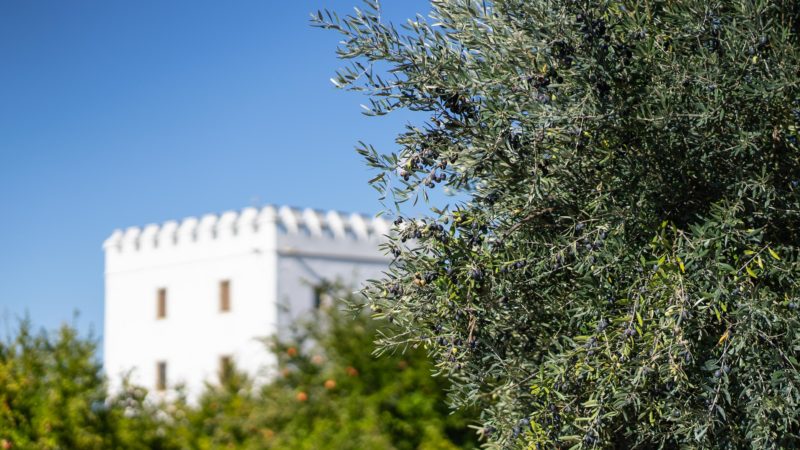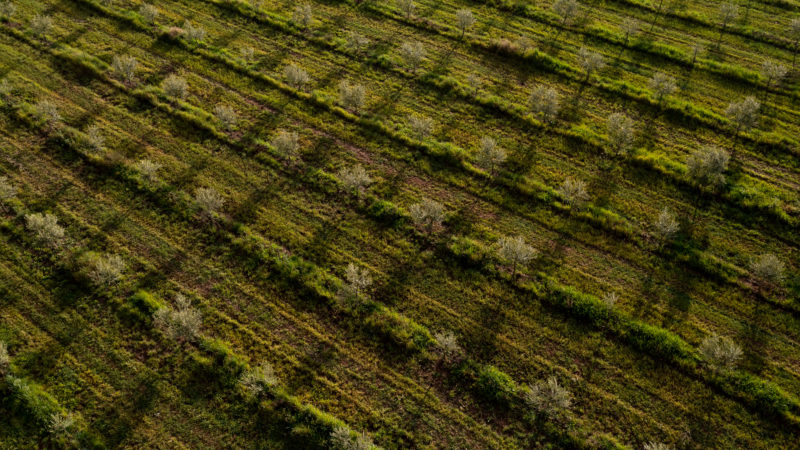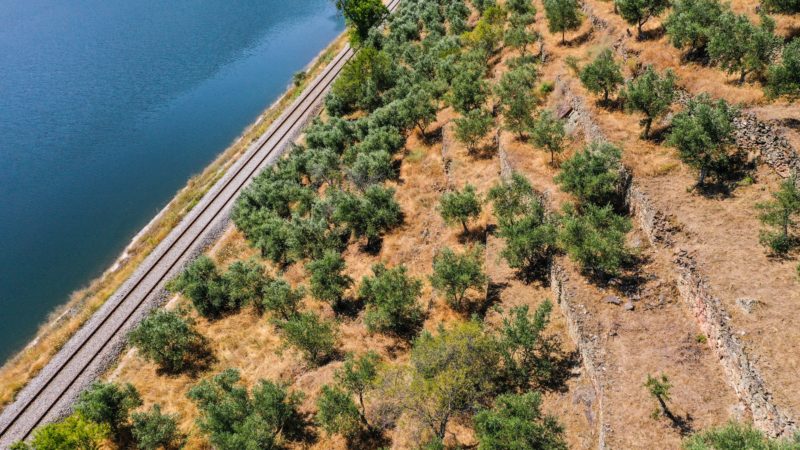We protect native olive varieties that are carefully selected and cold pressed in our olive mill at the Esporão estate. We only use sustainable processes to respect both nature and people, and ensuring that all the nutrients, aromas, and flavors are preserved.
Located in the Alentejo, Herdade do Esporão has unique conditions for agriculture. The olive oil venture began in 1997, and currently some 100 hectares of organic olive groves contain four different varieties.
It all started with the planting of Olival dos Arrifes at Herdade do Esporão in 2007. This 80-hectare olive grove takes its name, Arrifes, from its steep hillsides with rocky soil that make the trees more resilient, in a balanced ecosystem rich with biodiversity. Planned from the start as an organic grove, it contains two varieties, Arbequina and Cobrançosa. The latter, though native to the north-eastern Trás-os-Montes region of Portugal, has thrived in the Alentejo where it yields fresh, fruity olive oils that are predominantly herbaceous, with hints of newly cut grass.



